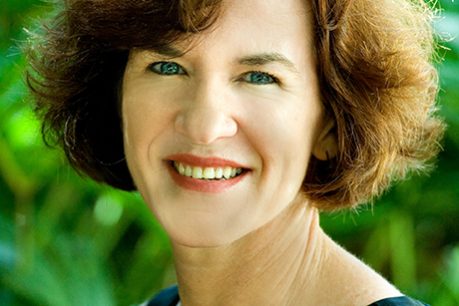To recognise the vital role nurses play in transforming our country’s health and aged care systems the Australian College of Nursing (ACN) and the Minister for Health are collaborating to present the inaugural Health Minister’s Award for Nursing Trailblazers. We are proud to administer this prestigious award to raise the profile of nursing and acknowledge the extraordinary impact nurses have on the health and well-being of our community.
Following an incredibly competitive selection process we are excited to profile the four Finalists of the inaugural Health Minister’s Award for Nursing Trailblazers. This is the third of a four part NurseClick series about each Trailblazer Finalist. We hope you enjoy getting to know the Finalists and reading about their inspirational stories. Today we are excited to share an interview with the extraordinary Trailblazer Finalist Professor Jeanine Young FACN, who is being recognised for her work on uniting cultural practices and safe sleep environments for Indigenous Australian infants.
1: What inspired you to become a nurse?
My mother was an intensive care nurse working in the local regional hospital. She was enthusiastic about going to work; no day was the same; and quietly competent in emergencies. Caring for families and walking with them through challenging times was extremely satisfying for her. Science and human biology is fascinating to me and I wanted to be part of a profession that is challenging, dynamic, translates to many settings, and makes a measurable difference to people and to communities. The profession of nursing is all of this.
2: What motivated you to pursue your particular nursing specialty?
I had a strong interest in advocacy and knew that I was destined to work with families with babies and young children. I built upon my general nursing experience by completing midwifery, neonatal nursing, and paediatric and child health qualifications, working in all of these settings before completing a doctoral degree. Every day as a nurse and maternal and child health researcher, I learn something new from families and their children whom I partner with, my multi-disciplinary colleagues, and the research we undertake. Addressing clinical and community care issues and contributing new knowledge continues to motivate and engage me in my profession.
3: Tell us about the project you are being recognised for as a Trailblazer Finalist.
The Pēpi-Pod Program is an innovative and culturally acceptable strategy to reduce risk of shared sleep environments for Aboriginal and Torres Strait Islander families with identified risks for sudden and unexpected infant death. The Pēpi-Pod Program comprises three essential elements: a portable infant sleep space that provides a zone of physical protection for baby’s airway, safe sleeping parent education and safety briefing, and a family commitment to use the sleep space as intended and to share safe sleeping messages within the family’s social networks. The program specifically reduces the interaction between shared sleeping environments and maternal and household member smoking, which is reported to increase Sudden Unexpected Death in Infancy (SUDI) risk ten-fold.
4: What has been the most rewarding part of the Pēpi-Pod Program?
The program focuses on a practical solution that allows parents to keep their baby close during the night which they value, whilst providing a safer sleep environment; achieving both support for parents and protection for baby. In particular we reduced the smoking-bedsharing interaction which significantly increases risk of infant death. Working in partnership with health service teams in co-designing the program to best fit with individual service models assisted staff capacity building around health promotion, research literacy and their ability to engage families in difficult conversations about safe infant sleeping. I am grateful to families and staff who willingly shared their experiences which grew my understanding of regional and remote area health needs and the values and beliefs of Aboriginal and Torres Strait Islander communities.
5: What does the future hold for the Pēpi-Pod Program?
We have recently commenced a population-based study in collaboration with the Queensland Paediatric Quality Council, which will allow us to evaluate the effectiveness of the Pēpi-Pod Program in the reducing infant mortality in the regions the program was implemented. We will continue to support existing maternal and child health services to deliver the program, and expand the program to other identified areas of need, e.g. young mother populations, migrant populations, where funding permits. Integrity of program delivery and program effectiveness on the primary outcome of infant mortality will continue to be monitored. The Program has been expanded to WA, SA, VIC and soon, NT. In New Zealand the Pēpi-Pod and Wahakura Programs have been associated with a 29-36% reduction in all cause infant mortality.





